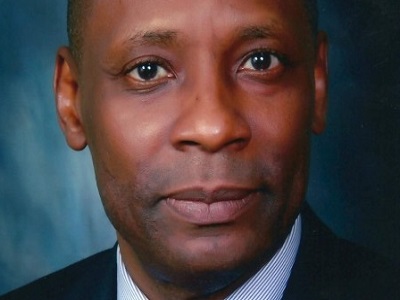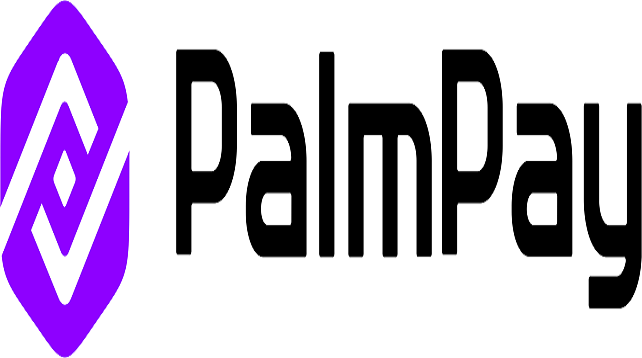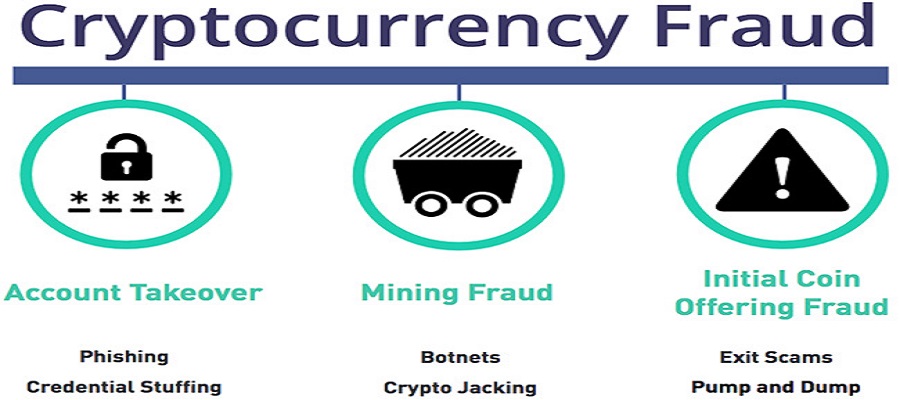E-Financial
Senate Queries N5.6Bn to AMCON, Says Company is a Failure

The Senate yesterday, lamented the failure of the Asset Management Company of Nigeria (AMCON) and demanded a probe of the N5.6 trillion pumped into the Company by the Central Bank of Nigeria (CBN) since inception.
This is coming on the heels of the recent call by the International Monetary Fund (IMF) on Nigeria to wind down AMCON.
The senators who alleged ineffective use of the huge sum sunk into the company, also said, that AMCON has failed to live up to its objective of recovering toxic debts owed by some commercial banks after some three years in business.
The Senators waxed worriedly during the consideration of a bill to amend the AMCON Act, which scaled second reading in the Senate yesterday.
The Bill tagged “Act to Amend Asset Management Corporation of Nigeria Act 2010,” among others, seeks to establish a corporate entity with a well constituted Board of Trustees drawn from CBN, eligible financial institutions, National Deposit Insurance Corporation (NDIC) and Ministry of Finance to make regulations for the supervision and management of AMCON fund..
But the Senate mandated its Committee on Banking, Insurance and other Financial Institutions chaired by Senator Bassey Otu, to find out the exact amount CBN had pumped into AMCON and how effectively it was used in the execution of its mandate as well as how much it has recovered so far.
Senator Ita Enang, chairman, Rules and Business Committee, said the sum exceeded Nigeria’s yearly budget with the allegation that since the company commenced operations, it has failed to recover up to 15 per cent of the entire money.
He advised the committee to examine the functions and operations of AMCON, adding that it was “disheartening that the organisation appeared to be failing because the amount committed to it by CBN was not free money but a loan meant to be paid to the Federation Account.”
Leading the debate, Senator Otu, said the bill seeks to prohibit any board member or an employee of AMCON from being directly or indirectly involved in the purchase of assets acquired by the corporation.
He also said the amendment bill sought to empower AMCON to acquire assets that are already subject to litigation if there is no valid court order restraining it from doing so.
David Mark, Senate president, noted that if the toxic debt that AMCON was mandated to manage was not yielding any fruitful result and the Federal Government was now asked to subsidise it, those found culpable in the fruitless exercise must be punished.
The committee is expected to report back to the Senate in two weeks.
E-Financial
PalmPay Expands Access to Digital Insurance Through Strategic Partnerships

PalmPay, a leading digital banking platform in Africa has announced the launch of strategic partnerships with top-tier insurance providers to offer accessible, affordable and simplified insurance products directly within the PalmPay app.

This initiative reflects the brand’s continued commitment to deepening financial inclusion and underscores its mission to improve the wellbeing of everyday Nigerians.
With only about 8.9% of Nigerians currently covered by any form of health insurance, the country remains one of the least insured populations in Africa. Barriers such as low awareness, affordability challenges, and trust issues continue to hinder broader adoption of insurance products.
PalmPay’s new insurance offering directly addresses these challenges by simplifying the purchase and management of insurance policies within the app. The PalmPay insurance feature is designed to make essential coverage, from health to device, and life insurance easily accessible at affordable prices, eliminating the traditional complexities often associated with insurance.
“Insurance is often perceived as complex or inaccessible, especially among underserved communities.” said Habib Kowontan, Head of Wealth Product at PalmPay. “Through these partnerships, we aim to break down those barriers by offering simple, reliable and affordable insurance options that are easily accessible within the PalmPay app.”
With over 35 million users across Nigeria, PalmPay continues to evolve as a smart, consumer-first digital banking platform. The integration of insurance services complements its growing suite of offerings, which includes transfers, bill payments, high-interest savings, and debit card services, making PalmPay one of the most comprehensive digital banking platforms in the African market.
“Our goal at PalmPay is to remove barriers and make essential services easily accessible to everyone,” said Mr Chika Nwosu, Managing Director of PalmPay. “Through these strategic partnerships, we’re expanding our services to be more inclusive and empowering our users with products that will positively impact their lives and finances.”
This rollout marks a significant milestone in PalmPay’s broader strategy to empower users with tools that enhance their daily lives. Building not just a payments app, but a smart and trusted financial partner for millions of Nigerians.
E-Financial
Fidelity Bank Intensifies Support for Displaced Persons in Makurdi Camp

In a timely gesture aimed at improving the plight of internally displaced persons (IDP) in Benue State, leading financial institution, Fidelity Bank Plc, has distributed mattresses and essential food items to over 2,000 victims of the Yelwata attacks currently taking refuge at the Ultra-Modern International Market IDP Camp in Makurdi.

Team Lead, CSR, Fidelity Bank Plc, Victoria Abuka (Left); CEO, The Abbasid Charity Foundation, Hauwa Abbas (Centre); and Branch Leader, Fidelity Bank Plc, Makurdi, Terwase (Right), representing the Regional Bank Head, North Central, Sadi Zawiya, with some beneficiaries during the Fidelity Food Bank distribution event in Makurdi, Benue State recently.
The donation, which was carried out in collaboration with the Abbasid Charity Foundation, is part of Fidelity Bank’s ongoing commitment to supporting vulnerable communities through its flagship Fidelity Food Bank program. Since its launch in April 2023, the Food Bank has distributed over 200,000 food packs to beneficiaries across Nigeria’s six geo-political zones.
Speaking about the donation event, the bank’s Divisional Head, Brand and Communications, Dr. Meksley Nwagboh reaffirmed Fidelity Bank’s dedication to Corporate Social Responsibility (CSR) and its mission to uplift communities.
His words, “Since its launch, the Fidelity Food Bank initiative has helped to alleviate the effect of poverty and malnutrition across the country. We are honored to be back in Benue State to continue this impactful initiative, and we hope that today’s donation brings much-needed relief and comfort to the beneficiaries during this difficult time”.
In her remarks, the Executive Officer, the Abbasid Charity Foundation, Mrs. Hawa Abbas, emphasized the importance of restoring dignity to the displaced, stating that the donation of mattresses was to ensure the IDPs no longer sleep on bare floors.
“This gesture is our way of letting the displaced persons know that they are not forgotten. We care deeply for them, and we hope this donation offers some comfort and hope, even in these difficult circumstances,” Abbas noted.
The Executive Secretary of the Benue State Emergency Management Agency (SEMA), Dr. James Iorpuu, who was represented by Camp Manager, Mr. Robert Nyom, expressed deep appreciation to Fidelity Bank and the Abbasid Charity Foundation for their timely support.
“Your intervention has brought much-needed relief to the camp and we thank you for your compassion and generosity towards improving the welfare of the displaced persons,” he said.
The bank’s outreach to the International Market IDP Camp in Makurdi represents the most recent of its ongoing critical and timely interventions. Previously, through its Food Bank Initiative, the bank provided essential food items to more than 1,500 residents impacted by the recent flood disaster in Mokwa, Niger State.
Ranked among the best banks in Nigeria, Fidelity Bank Plc is a full-fledged Commercial Deposit Money Bank serving over 9.1 million customers through digital banking channels, its 255 business offices in Nigeria and United Kingdom subsidiary, FidBank UK Limited.
The Bank is the recipient of multiple local and international Awards, including the 2024 Excellence in Digital Transformation & MSME Banking Award by BusinessDay Banks and Financial Institutions (BAFI) Awards; the 2024 Most Innovative Mobile Banking Application award for its Fidelity Mobile App by Global Business Outlook, and the 2024 Most Innovative Investment Banking Service Provider award by Global Brands Magazine. Additionally, the Bank was recognized as the Best Bank for SMEs in Nigeria by the Euromoney Awards for Excellence and as the Export Financing Bank of the Year by the BusinessDay Banks and Financial Institutions (BAFI) Awards.
E-Financial
Secret Service Seizes $400M in Crypto, Cold Wallet among World’s Largest

US Secret Service has quietly seized nearly $400 million in digital assets over the past decade, amassing one of the world’s largest crypto cold wallets, Bloomberg reported at the weekend, citing people familiar with the matter.

The agency’s Global Investigative Operations Center (GIOC) has tracked funds through open-source tools, blockchain analysis, and patience, Jamie Lam, an investigative analyst with the US Secret Service, reportedly told law enforcement officials in Bermuda last month.
The agency’s crypto trove, much of which sits in a single cold-storage wallet, results from a string of investigations into scams. Scammers lure targets into seemingly legitimate crypto investment platforms in one typical scheme.
Victims often see initial profits before the sites vanish with their deposits.
“That’s how they do it,” Lam said. “They’ll send you a photo of a really good-looking guy or girl. But it’s probably some old guy in Russia.”
Lam’s team uses domain records, blockchain transactions, and VPN slip-ups to identify fraudsters. In one case, a cryptocurrency payment led investigators to another wallet. In another one, a brief VPN failure exposed an IP address, helping agents piece together the scam’s digital trail.
At the helm of the Secret Service’s crypto strategy is Kali Smith, who directs a team that has trained officials in over 60 countries to unmask online financial crimes.
The agency has focused on jurisdictions with weak oversight or programs selling residency to foreign nationals. “Sometimes after just a week-long training, they can be like, ‘Wow, we didn’t even realize that this is occurring in our country,’” Smith said.
The Secret Service’s work has uncovered scams ranging from romance-investment schemes to sextortion cases. One investigation involved an Idaho teenager who sent a nude photo to an online stranger. The scammer extorted $300 twice before the teen went to the police.
Analysts traced the payments through another coerced teenager acting as a money mule, leading to an account tied to nearly $4.1 million in transactions under a Nigerian passport.
British police arrested the suspected extortionist when he arrived in Guildford, England, where he remains in custody pending extradition.

 Telecom3 days ago
Telecom3 days agoY’ello Care’s 21-Day Campaign Bridges Digital Divide for Thousands Nationwide

 General News3 days ago
General News3 days agoEnugu Air Commences Operations Today

 E-Business3 days ago
E-Business3 days agoGalaxy Backbone, Rural Electrification Agency Commit to Deepening Digital and Energy Access Across Nigeria

 Broadcasting3 days ago
Broadcasting3 days agoNDPC Slaps Multichoice with ₦766M Fine for Data Privacy Violations

 News3 days ago
News3 days agoLagos-Calabar Highway Gets $100M Push from ECOWAS to Drive Regional Growth

 Telecom3 days ago
Telecom3 days ago20 Years of Digital Leadership: Layer3’s Legacy and the Road Ahead

 Telecom2 days ago
Telecom2 days agoNCC Wins Global ICT Award for Digital Awareness in Schools

 News3 days ago
News3 days agoNBS May Release Rebased Figures for Nigerian Economy July 11



























